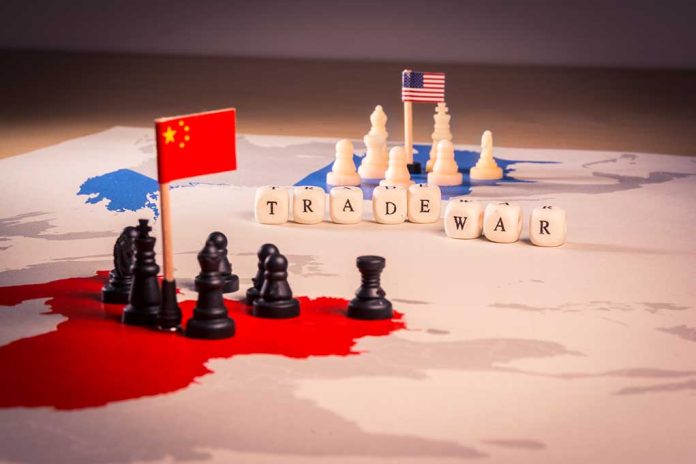
China remains America’s chief intellectual property thief, with 90% of all counterfeit goods seized in the U.S. originating from China and Hong Kong according to the USTR’s damning 2024 Special 301 Report.
Key Takeaways
- China continues to occupy the USTR’s Priority Watch List due to persistent intellectual property violations and unfulfilled commitments from the Phase One Trade Agreement.
- A staggering 90% of counterfeit goods seized by U.S. Customs originate from China and Hong Kong, highlighting China’s dominant role in global IP theft.
- China’s new “Provisions on the Handling of Foreign-Related Intellectual Property Disputes” raises concerns as it appears to legitimize political intervention in IP disputes.
- The Trump administration is preparing for potential trade enforcement actions against countries failing to properly protect American intellectual property.
- Mexico has been downgraded to the Priority Watch List alongside China due to unresolved IP concerns related to USMCA commitments.
China’s Persistent IP Theft Keeps It on Priority Watch List
The United States Trade Representative’s 2024 Special 301 Report has once again placed China on its Priority Watch List, highlighting the communist nation’s continued failure to adequately protect intellectual property rights. Despite commitments made under the Phase One Trade Agreement in January 2020, China has failed to fully implement promised reforms, continuing to allow the theft of American innovation and technology. This annual review, conducted under the Trade Act of 1974, evaluates over 100 trading partners and has identified China as one of eight countries with the most serious intellectual property protection and enforcement deficiencies.
“Americans take great pride as the world’s leading innovators and creators,” U.S. Trade Representative Jamieson Greer said in a statement. “Our trading partners must address the concerns identified in the Special 301 Report and stop those stealing the intellectual property of hard-working businesses and individuals.”
Counterfeit Crisis: China’s Dominance in Fake Goods
The USTR report delivers a sobering assessment of China’s role in the global counterfeit market, revealing that an overwhelming 90% of counterfeit and pirated goods seized by U.S. Customs originate from China and Hong Kong. This statistic underscores the massive scale of intellectual property theft facilitated by Chinese manufacturers and distributors. The counterfeit goods problem extends beyond economic harm to American businesses, as many fake products pose potential health and safety risks to consumers who unknowingly purchase these inferior and potentially dangerous items online and through other channels.
“This World IP Day, remember: China doesn’t innovate—it steals. From semiconductors to biotech, they’re looting American ideas to build their military. I’ll keep fighting to stop it,” said Sen. Tom Cotton.
Political Interference in IP Disputes
Of particular concern in this year’s report is China’s new “Provisions on the Handling of Foreign-Related Intellectual Property Disputes,” which appears designed to legitimize political intervention in intellectual property disputes. This troubling development suggests that rather than moving toward international standards of IP protection, China is creating new mechanisms to potentially manipulate outcomes in favor of domestic interests. Such provisions directly contradict commitments China has made to the United States and international organizations regarding fair treatment of foreign businesses and intellectual property rights.
“President [Donald] Trump has a track record of empowering our innovators and workers, and this comprehensive report is a basis for the United States to take trade enforcement action against those not playing fairly,” said U.S. Trade Representative Jamieson Greer
Broader Global IP Concerns and U.S. Response
Beyond China, the report identifies significant IP issues in several other countries. Mexico has been downgraded to the Priority Watch List alongside China, primarily due to unresolved concerns related to USMCA commitments. Seven other countries join China on the Priority Watch List, while eighteen countries, including Thailand, Vietnam, and Brazil, remain on the Watch List for less severe but still significant IP issues. Cross-cutting concerns identified in the report include online piracy, trademark counterfeiting, forced technology transfer, and geographical indications policies that fail to respect existing trademark rights.
The Trump administration has signaled a strong commitment to protecting American intellectual property through potential trade enforcement actions against countries that fail to address the concerns identified in the report. This approach aligns with President Trump’s consistent focus on fair trade practices and the protection of American innovation and jobs. With an estimated $600 billion in annual losses from IP theft, the stakes for American businesses and workers remain extremely high, justifying vigorous enforcement measures against persistent offenders like China.













